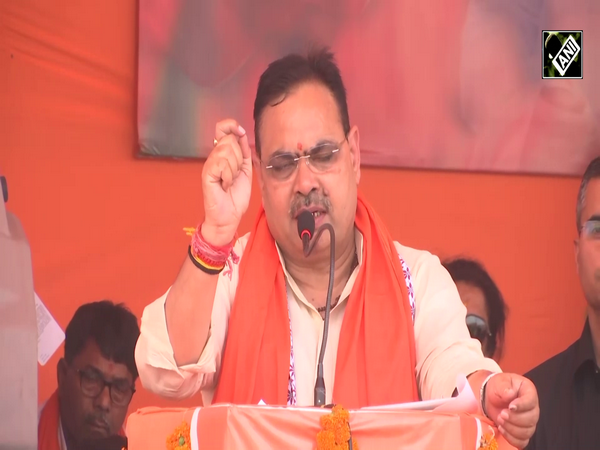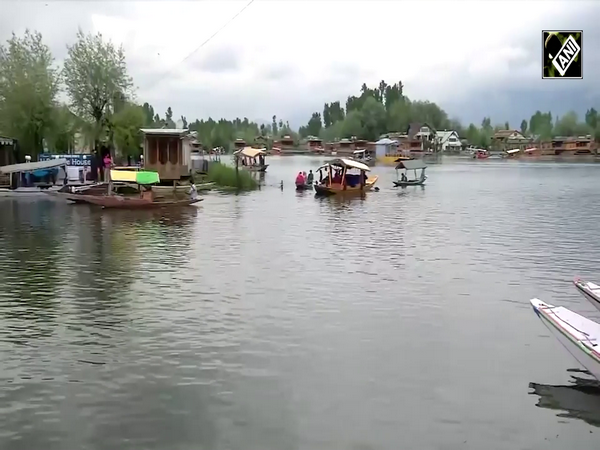Pakistan power authority NEPRA to raise electricity tariffs again
Jul 30, 2022

Islamabad [Pakistan], July 30 : Pakistan's National Electric Power Regulatory Authority (NEPRA) has issued a decision to increase the basic electricity tariff once again after it raised the basic electricity tariff by Rs 7.9 per unit last week.
As per NEPRA's decision, the power tariff was increased by 50 paise per unit. The approval was given by NEPRA for the third quarter of the financial year 2021-22, ARY News reported.
According to the decision, the increase will impose an additional burden of PKR 12.76 billion on the electricity consumers.
NEPRA said that the increase will come into effect from September 1 for three months.
The increase will not be applicable to the lifeline and K-Electric customers. NEPRA sent the decision to the federal government for its notification.
It should be noted that Nepra had approved an increase of PKR 9.79 per unit of electricity. The increase in power tariff was approved in terms of the monthly adjustment for the last financial year, ARY News reported.
In Nepra, Central Power Purchasing Agency (CPPA) held a hearing regarding the fuel adjustment for June, in which the increase was approved.
On July 28, the authority raised the power tariff for K-Electric consumers by PKR 11.37, a PKR 0.01 less than demanded by the power utility.
The approval was given in terms of fuel adjustment charges for June 2022 and the increase will not be applicable for lifeline consumers.
The K-Electric has demanded a hike in power tariff by PKR 11.38 and while justifying it one of its spokespersons said that it was for a month in terms of FAC and was as per the NEPRA rules.
The power utility blamed the hike in prices of furnace oil in international markets by 42 per cent from March to June 2022 behind the increase, ARY News reported.
"The RLNG prices also rose by 50 from March to June," a spokesman for the K-Electric said.
On July 23, the Pakistani government raised the electricity price in the country by PKR 7.91 per unit under a "uniform national tariff".
Pakistan Power Regulatory Authority approved the federal government's request to charge end-consumers of all power distribution companies.
The National Electric Power Regulatory Authority (Nepra) raise the tariff after Pakistan Prime Minister Shehbaz Sharif granted advance clearance for a PKR 7.91/unit increase in the base power cost.
With the depleting foreign currency reserves and rising inflation, Pakistan is on the brink of economic collapse and heading towards a path similar to the economic downfall of Sri Lanka.
The country is already staring down an economic nightmare and amid this more troubling news keeps coming as IGI Securities Ltd, one of the leading securities firms in Pakistan, said that the Pakistani rupee may slump further to 275 per dollar.
The rupee was trading at Rs 238 against the US dollar in the interbank market during the intraday trade.
The Pakistani Rupee is down 23 per cent this year. The extra yield investors demand to hold Pakistan's sovereign debt over US Treasuries exceeded 1,700 basis points, according to JPMorgan Chase & Co data, an American multinational investment bank.
On Friday, the electricity shortfall in the country remained at 6,000 megawatts, reducing the gap between production and demand owing to improvement in weather conditions in the country amid rainfall.
The power production remained at 22,000 MW in the country against the demand of 28,000 MW, resulting in a shortfall of 6,000 MW.
The duration of electricity load shedding stood at five hours in urban centres and eight hours in rural areas.
Recently, Pakistani Minister of State for Petroleum Musadik Malik in Islamabad and Minister for Power Khurram Dastgir announced an increase of 3.50 rupees per unit in power tariff.
"There will be another increase of 3.50 rupees per unit from next month whilst in the month of October, the tariff will be increased by ninety paise per unit," Khurram Dastagir said.
He said the increase in the electricity tariff will not have an impact on the poorest consumers. "The consumers are already paying a big portion of this increase in the form of fuel surcharge. This fuel surcharge will now be reflected in the tariff," he added.
The shortfall in Lahore Electric Supply Company (LESCO) remained at 300 MW, resulting in three to four hours of load shedding in the city.
It is pertinent to mention here that the federal government has announced multiple deadlines previously to end load-shedding in the country, however, they have yet to materialize owing to multiple reasons cited by the ministers including higher fuel prices and delays in the maintenance of the power plants, ARY News reported.




















